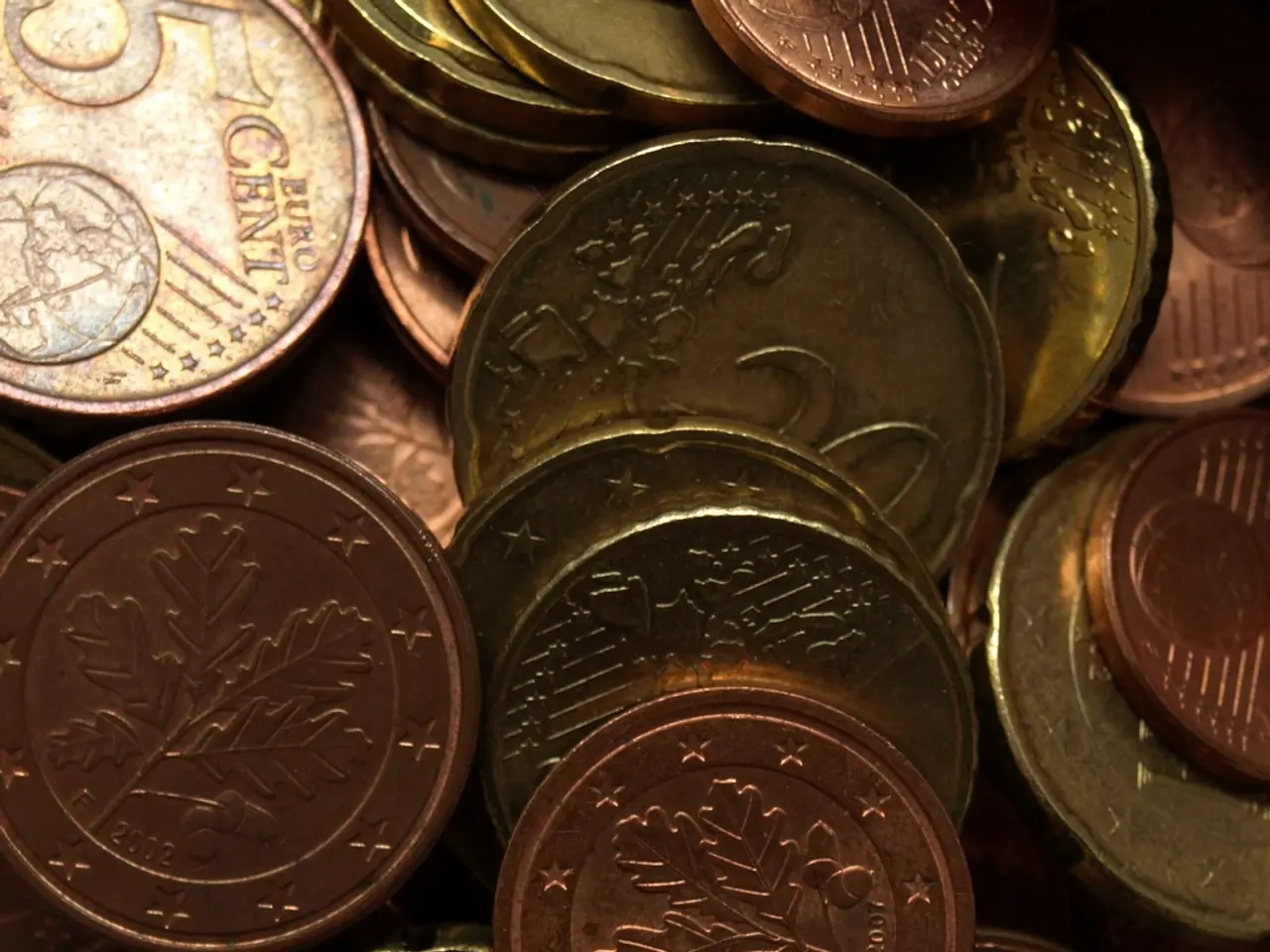Ripple Corporation signs a groundbreaking accord with the Securities and Exchange Commission:
In a significant turn of events, the U.S. Securities and Exchange Commission (SEC) and Ripple Labs have reached a resolution in their long-standing legal dispute, marking a milestone in cryptocurrency regulation. This development, after more than four years of legal battles, demonstrates the potential for a balanced approach that safeguards investors, maintains legality, and fosters innovation in the crypto sector.
The settlement, announced in August 2025, sees both parties dismissing their appeals, effectively ending the lawsuit that had cast doubt on whether XRP qualifies as a security. The final court ruling clarified that XRP sales to retail investors on secondary markets are not securities transactions, while some institutional sales do violate securities laws. This decision provides much-needed regulatory clarity for XRP and the broader crypto market.
Following this resolution, the SEC has taken a more structured and modernised approach towards cryptocurrency regulation. The SEC's new initiative, Project Crypto, launched in July 2025, aims to update securities rules to accommodate blockchain and crypto innovations. This project seeks to establish clear guidelines for the classification of crypto assets, disclose exemptions, and support crypto token offerings like initial coin offerings, airdrops, and network rewards. It also aims to facilitate tokenized securities and integrate decentralized finance (DeFi) mechanisms while using interpretive and exemptive relief to avoid stifling innovation.
The settlement includes a $50 million fine for Ripple, significantly lower than the initial $125 million fine proposed by Judge Analisa Torres in 2023. The SEC will also return around $75 million to Ripple held in a security deposit account. Ripple CEO, Brad Garlinghouse, has commented on the exceptional year for his company and XRP due to the resolution of the dispute with the SEC and growing institutional interest.
The outcome of this case could serve as a key legal precedent for the crypto industry, clarifying what constitutes a digital asset. It could also attract more institutional investment and foster innovation in the crypto sector. The SEC's new approach aims to reduce uncertainty and facilitate the operation of projects and platforms in the crypto industry. Among the proposals under discussion are the implementation of tokenization protocols, the creation of regulatory sandbox environments, and the definition of transparency standards.
The SEC continues to assert jurisdiction over crypto securities while sharing or ceding some roles to other regulators like the Commodity Futures Trading Commission (CFTC) and banking authorities, depending on the asset type. New legislation such as the House-passed CLARITY Act further refines regulatory jurisdiction, granting the CFTC exclusive jurisdiction over digital commodities and spot transactions, with registration requirements for intermediaries. The SEC maintains exclusive authority over issuers and issuances of investment contract assets and certain transactional anti-fraud enforcement.
State securities regulators remain active and vigilant, engaging with proposed federal legislation such as the CLARITY Act and the Responsible Financial Innovation Act (RFIA), advocating for maintaining state antifraud enforcement powers even as federal crypto laws evolve.
It is important to note that investment in crypto assets is not fully regulated and may not be suitable for retail investors due to its high volatility and the risk of losing the entire amount invested. As of the article's close, XRP is trading at a daily gain of 3%, at around $2.34 per token.
The presidency of Paul Atkins at the Securities and Exchange Commission (SEC) has led to a more open stance towards technological innovation, which could bode well for the future of the crypto industry. The legal battle between Ripple and the SEC began in December 2020 under the leadership of Jay Clayton, then SEC chairman. Under the current administration, the SEC is seeking a balance between investor protection and the promotion of blockchain sector development.
References:
- SEC Press Release, "SEC Charges Ripple Labs and Two Executives with Illegally Offering Unregistered Securities", 23 December 2020, https://www.sec.gov/news/press-release/2020-281
- SEC Press Release, "SEC and Ripple Labs Resolve Securities Act Claims", 24 August 2025, https://www.sec.gov/news/press-release/2025-160
- SEC, "Project Crypto", https://www.sec.gov/cryptocurrency
- CoinDesk, "Ripple Settles SEC Lawsuit, Ending Years-Long Legal Battle", 24 August 2025, https://www.coindesk.com/ripple-settles-sec-lawsuit-ending-years-long-legal-battle
- Cointelegraph, "SEC's New Crypto Regulatory Approach: Clarity, Sandboxes, and Transparency", 25 August 2025, https://cointelegraph.com/news/sec-s-new-crypto-regulatory-approach-clarity-sandboxes-and-transparency
Read also:
- Indian Oil Corporation's Panipat Refinery secures India's inaugural ISCC CORSIA accreditation for Sustainable Aviation Fuel production
- Ford Bets on an Affordable Electric Pickup Revolution with a $30,000 Design
- Rapid Charging Stations for Electric Vehicles Avoiding Grid Overload
- TikTok's Artificial Intelligence Regulation Approach Meets Stiff Opposition from German Trade Union








